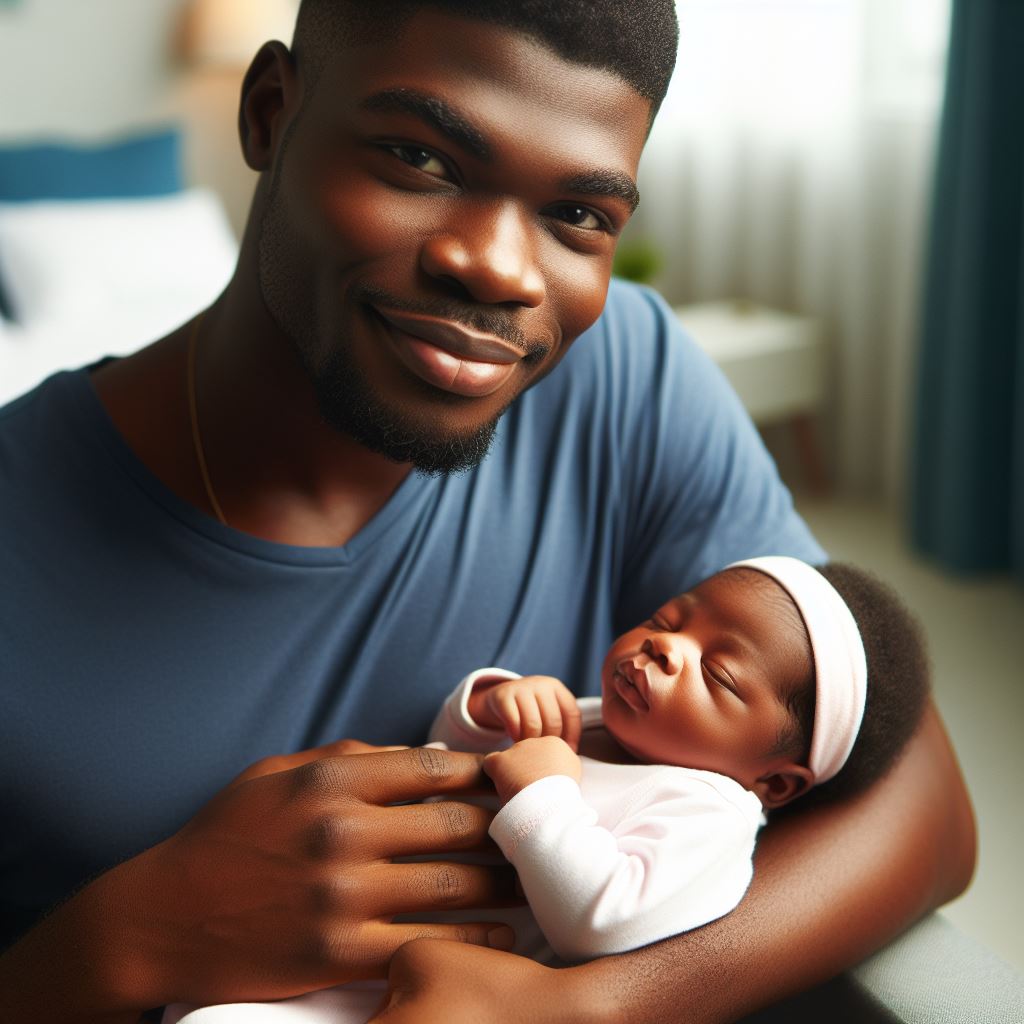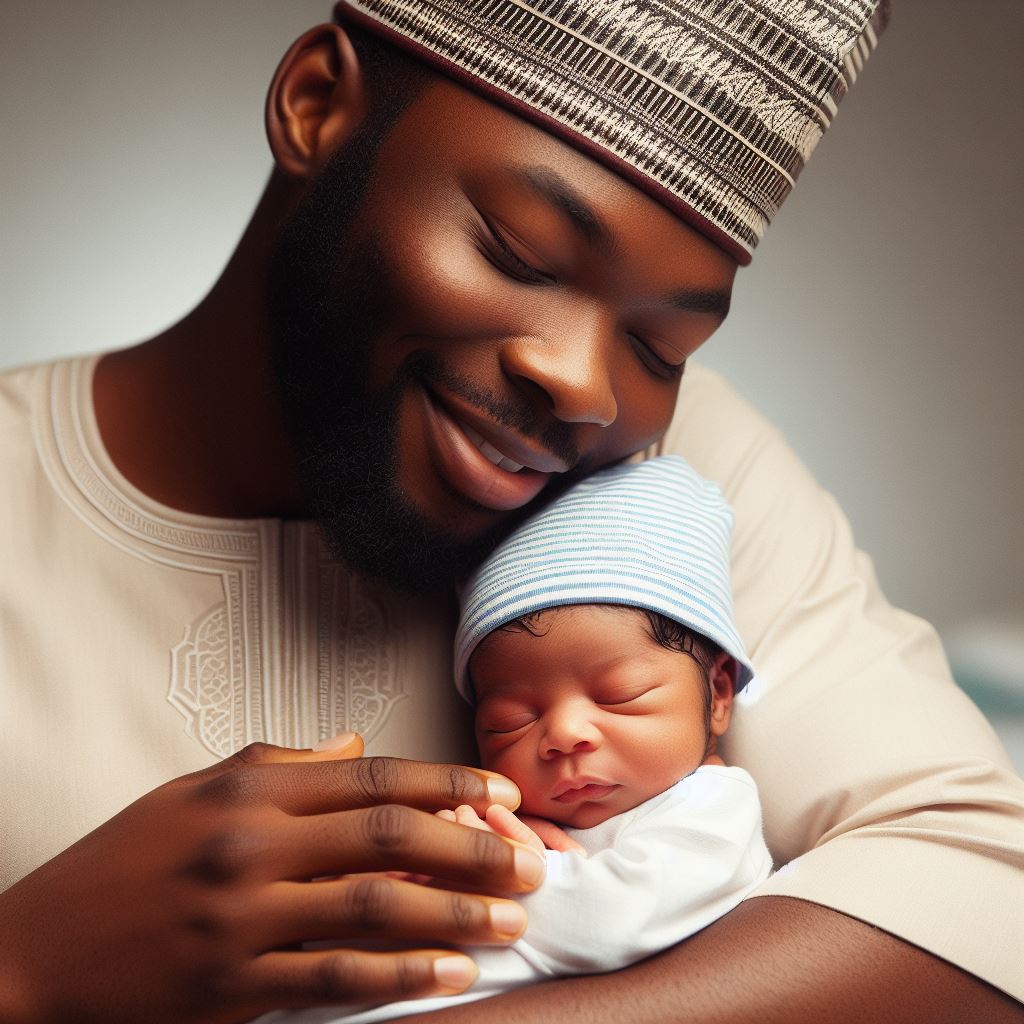Introduction
The concept of fatherhood has undergone a significant transformation in recent years.
Traditionally, fathers were expected to be the primary breadwinners, while mothers took on the role of caregiving and nurturing.
However, in the modern context, fathers in Nigeria are embracing new responsibilities and breaking away from gender stereotypes.
Today, Nigerian fathers are actively involved in the upbringing of their children.
They are no longer confined to the role of strict disciplinarians but have become more nurturing and emotionally connected.
This change is largely driven by the increasing number of working mothers who depend on their partners to share household and parenting duties.
Moreover, societal norms are slowly recognizing the importance of the father’s role in the family.
Fathers are now encouraged to bond with their children, actively participate in their education, and attend school events.
This shift not only provides support to mothers but also strengthens family relationships and creates a healthier environment for children’s development.
The changing roles of fathers in Nigeria signify a progressive step towards gender equality.
It challenges the notion that parenting is solely a mother’s duty and highlights the importance of a shared responsibility in raising children.
This transformation benefits both fathers and children, as fathers are now able to experience the joys of active parenthood, while children benefit from having two involved parents.
In essence, modern Nigerian fatherhood is experiencing a paradigm shift.
Fathers are redefining their roles, actively participating in parenting, and challenging traditional gender stereotypes.
This shift not only benefits families but also contributes to the overall growth and development of Nigerian society.
Parenting Made Just for You
Get personalized Parenting Solutions tailored to your child’s needs. Transform your parenting journey with expert guidance in 1-3 days.
Get StartedTraditional Fatherhood Roles in Nigeria
Overview of traditional fatherhood roles
- Fathers in Nigeria play a crucial role in the family structure.
- They are traditionally seen as the head and provider of the household.
- Their primary responsibility is to ensure the well-being and protection of their family.
- They are expected to be the disciplinarians and maintain order within the household.
- Respect for elders and authority is ingrained in their role as fathers.
Paternal responsibilities
- Fathers have the responsibility of providing financial support for the family.
- They are expected to work hard to meet the needs of their spouse and children.
- Ensuring the education and proper upbringing of their children is a vital paternal duty.
- They also serve as role models for their children, teaching them important values and morals.
- Fathers are responsible for making important decisions that impact the family’s well-being.
Influence of cultural and societal norms
- Traditional Nigerian culture places a strong emphasis on the importance of fatherhood.
- Fathers are seen as the authority figures who maintain the family’s honor and reputation.
- They are expected to exhibit strength, wisdom, and leadership in their roles.
- Paternal responsibilities are influenced by societal norms that expect fathers to be providers.
- Fathers are often revered and respected, and their opinions carry significant weight in family matters.
In fact, traditional fatherhood roles in Nigeria encompass being the head of the household, provider for the family’s needs, and an authoritative figure.
Fathers are responsible for ensuring the well-being, protection, and proper upbringing of their children.
Cultural and societal norms greatly influence these roles, with fathers being expected to exhibit strength, leadership, and wisdom.
The importance of fatherhood is deeply ingrained in Nigerian culture, and fathers hold a respected and revered position within the family structure.
Read: Cultural Expectations for New Nigerian Dads
Factors Driving Change in Fatherhood Roles
Shifts in gender roles and equality
The transformation of fatherhood roles in Nigeria is driven by several factors.
Firstly, shifts in gender roles and increased emphasis on equality have challenged traditional stereotypes that confined fathers to the breadwinner role.
Fathers are now taking on more active caregiving duties and participating in household chores, recognizing the significance of emotional connection and involvement with their children.
Economic factors and changing family dynamics
Economic factors also play a crucial role. With the rising cost of living, fathers are increasingly involved in parenting to support their partners and provide for their children.
The need for dual-income households has made it necessary for fathers to balance work and family responsibilities.
Moreover, globalization and Western influence have contributed to the changing roles of fatherhood in Nigeria.
The exposure to different cultures and parenting styles through globalization has diversified the concept of fatherhood, allowing fathers to explore alternative models.
The portrayal of involved fathers in Western media and literature has influenced the perception of fatherhood, emphasizing shared parenting and the emotional well-being of children.
Influence of globalization and Western influence
These factors combined have resulted in a significant evolution of fatherhood roles in modern Nigeria.
Unveil the Perfect Name that Tells Your Family's Story
Let us help you find a name that embodies your family's values, traditions, and dreams. Our personalized consultation weaves cultural insights to create a name that's uniquely yours.
Get StartedFathers are no longer solely defined by their financial contributions but are recognized for their active involvement in their children’s lives.
This change is beneficial for both fathers and children as it fosters stronger family bonds, provides positive role models for children, and contributes to their overall well-being.
In short, the changing roles of fatherhood in Nigeria are driven by shifts in gender roles and equality, economic factors, and the influence of globalization and Western ideals.
This evolution is a positive step towards more involved and nurturing fathers, promoting healthier family dynamics and contributing to the overall development of children in Nigerian society.
Read: Dads and Baby Sleep Patterns: Tips and Tricks
The Emergence of Modern Fatherhood in Nigeria
Changing attitudes towards fatherhood
- Fathers in Nigeria are breaking traditional stereotypes and embracing more active roles in parenting.
- Previously, the societal norm expected fathers to be distant authority figures, focusing solely on providing for the family.
- However, modern fathers value emotional connections with their children and prioritize spending quality time with them.
- They understand the importance of being present and involved in their children’s lives.
- The shift in attitude towards fatherhood is gradually dismantling gender roles and promoting gender equality within families.
Increased involvement in child-rearing activities
- Modern fathers in Nigeria are taking a more hands-on approach to child-rearing, challenging traditional gender roles.
- They actively participate in activities such as changing diapers, feeding, and bathing their children.
- These fathers are recognizing the significance of bonding with their children from an early age.
- They understand that active involvement in child-rearing fosters stronger parent-child relationships and contributes to their children’s overall development.
- As a result, Nigerian fathers are now more visible and engaged in parenting, creating a positive impact on the well-being of their families.
Active participation in household chores
- Modern fatherhood in Nigeria goes beyond childcare; it includes active participation in household chores.
- Fathers are no longer limited to being breadwinners but are embracing their role as co-managers of the household.
- They contribute to tasks such as cooking, cleaning, and laundry, recognizing that maintaining a clean and organized home is a shared responsibility.
- This shift challenges traditional gender norms and promotes a more equitable division of labor within the household.
- Children also witness these changes, leading to the normalization of shared responsibilities, thus encouraging gender equality.
Overall, modern fatherhood in Nigeria is witnessing remarkable changes.
Fathers are challenging traditional stereotypes, actively participating in child-rearing activities, and sharing household responsibilities.
Their changing attitudes towards fatherhood are promoting gender equality and nurturing healthier parent-child relationships.
This shift in fatherhood roles contributes positively to the overall well-being and development of families in Nigeria.
Nigerian society is undergoing a transformation, with fathers embracing their roles with enthusiasm, love, and dedication.
Read: Navigating Paternity Leave in Nigeria

Benefits and Challenges of Changing Fatherhood Roles
Improved bond and relationship with children
- Active fathers can establish a stronger emotional connection with their children.
- Frequent and meaningful interactions with children help build trust and promote a healthy relationship.
- Engaging in activities together provides opportunities for fathers to understand their children’s needs.
- Investing time and effort in parenting enhances the bond and creates lasting memories.
- A nurturing father-child relationship contributes to the overall well-being and happiness of both parties.
Positive impact on child development and overall family well-being
- Fathers’ involvement in caregiving positively influences children’s cognitive and socio-emotional development.
- Children with involved fathers tend to perform better academically and have higher self-esteem.
- Fathers’ active presence supports mothers in balancing work and family responsibilities, reducing stress.
- Shared parenting responsibilities create a more egalitarian family dynamic and promote gender equality.
- The presence of supportive and involved fathers fosters a sense of security and stability in the family.
Societal and cultural barriers and resistance to change
- Traditional gender roles in Nigeria often dictate that fathers are the breadwinners and mothers the primary caregivers.
- Shifting societal expectations may result in skepticism and resistance towards men taking on caregiving roles.
- Cultural norms and traditions can discourage fathers from actively participating in child-rearing.
- Limited paternity leave policies and workplace support make it challenging for fathers to prioritize family involvement.
- Stereotypes and stigma surrounding involved fatherhood may discourage some men from embracing new roles.
While the benefits of changing fatherhood roles are evident, the challenges cannot be ignored.
The transition towards gender-neutral parenting requires a collective effort from society, community leaders, and policymakers.
To overcome societal and cultural barriers, awareness campaigns highlighting the positive impact of involved fatherhood are crucial.
Public and private organizations should advocate for improved paternity leave policies and flexible work arrangements, enabling fathers to actively participate in their children’s lives.
Family support programs and educational initiatives can educate parents about the importance of shared parenting and encourage dialogue within communities.
By challenging traditional gender norms and promoting acceptance, Nigeria can foster an environment where fathers are empowered to embrace their changing roles.
In general, the shifting landscape of fatherhood roles in Nigeria presents both opportunities and challenges.
Embracing active fatherhood enhances the bond with children, positively impacts child development, and improves overall family well-being.
However, societal and cultural barriers require concerted efforts to ensure that fathers are encouraged and supported in their new roles.
By recognizing and addressing these challenges, Nigeria can pave the way for a more equitable and fulfilling future for fathers and their families.
Read: Parenting Classes: Why Nigerian Dads Should Join
Leading by Example: Role Model Fathers in Nigeria
Influential and progressive fathers in Nigeria
Nigeria, like many other countries, has seen a shift in traditional gender roles over the years.
Fathers are increasingly taking on more active roles in parenting and household responsibilities.
These influential and progressive fathers are breaking stereotypes and setting an example for others.
One such father is Mr. Adeola Ogunbiyi, a successful entrepreneur and father of three.
He believes in equal partnership with his wife and actively participates in their children’s upbringing.
Mr. Ogunbiyi is known for his hands-on approach to parenting, from changing diapers to attending parent-teacher meetings.
Another inspirational figure is Mr. Samson Okoro, a single father who leads by example in balancing work and family life.
Despite the challenges of being a sole caregiver, Mr. Okoro ensures that his children receive the love, care, and attention they deserve.
He instills in them values of respect, responsibility, and hard work.
Their impact on society and family life
These role model fathers in Nigeria have not only made a significant impact on their own families but also on society as a whole.
Their involvement in parenting challenges the traditional notion of fatherhood and encourages other fathers to do the same.
By actively participating in their children’s lives, these fathers are fostering stronger bonds within their families.
They are creating a nurturing environment where children feel loved, supported, and valued.
This, in turn, has a positive effect on their emotional well-being and overall development.
Moreover, their progressive approach to fatherhood challenges gender stereotypes and promotes gender equality.
It sends a powerful message that caregiving is not exclusive to mothers and that fathers can be just as loving, caring, and capable.
Inspiration for other fathers to embrace modern fatherhood
These role model fathers serve as an inspiration for others to embrace modern fatherhood.
They demonstrate active parenting while succeeding in various life aspects, setting an example of balance and engagement.
For fathers who may be hesitant to take on more active roles, seeing the positive impact on their own families and society can encourage them to step up.
They realize that being present in their children’s lives brings immeasurable joy and fulfillment.
Fathers must grasp that their role surpasses financial aid; it involves emotionally supporting, guiding, and actively participating in their children’s growth.
Furthermore, the support and recognition of society are essential in encouraging fathers to embrace modern fatherhood.
Community programs, workplace policies, and media representation can all play a role in promoting and celebrating progressive fatherhood.
In review, influential and progressive fathers in Nigeria are setting an example for others by actively participating in parenting and challenging traditional gender roles.
Their impact on society and family life is undeniable, as they foster stronger bonds within their families and promote gender equality.
Their stories of success and fulfillment serve as inspiration for other fathers to embrace modern fatherhood.
Supporting Modern Fatherhood in Nigeria
Promoting policies and legislation to encourage gender equality
- Promote the implementation of policies that promote equal rights and opportunities for fathers and mothers.
- Encourage the development of laws that allow fathers to have paternity leave.
- Advocate for the inclusion of shared parenting provisions in family law and child custody cases.
- Create awareness about the importance of gender equality in parenting roles to lawmakers and policymakers.
- Suggest tax incentives for companies that offer family-friendly policies that support fathers.
Providing resources and support for fathers to actively participate
- Establish fatherhood resource centers where fathers can access information and support.
- Offer workshops and training programs that equip fathers with parenting skills and techniques.
- Provide counseling and mental health services tailored to the needs of fathers.
- Create online platforms and communities where fathers can connect and share their experiences.
- Collaborate with employers to implement flexible working hours and remote work options for fathers.
Raising awareness and challenging societal stereotypes
- Launch public awareness campaigns highlighting the positive impact of involved fathers in child development.
- Create educational programs in schools that teach children about gender equality and balanced parenting.
- Showcase diverse and positive representations of fathers in the media and popular culture.
- Organize events and conferences that explore and challenge traditional gender roles and expectations.
- Celebrate and recognize fathers who actively participate in caregiving and parenting responsibilities.
Supporting modern fatherhood benefits not only fathers themselves but also their children, families, and society as a whole.
It leads to improved child well-being, stronger family relationships, and greater gender equality overall.
It is vital for individuals, communities, and the government to come together and work towards supporting and promoting modern fatherhood in Nigeria.
Collective efforts empower fathers, engaging them actively in upbringing, shaping a society supportive of involved paternal roles.
Conclusion
Recap of the main points discussed
In this post, we have explored the changing roles of fathers in modern Nigeria.
We discussed how traditional gender roles are evolving and the increasing involvement of fathers in child-rearing and household responsibilities.
We also examined the challenges faced by modern fathers, including societal expectations and the need for work-life balance.
Emphasizing the importance of embracing modern fatherhood
It is crucial for fathers to embrace their roles in the family, as active and involved caregivers.
Modern fatherhood brings numerous benefits, such as stronger family bonds, positive child development, and gender equality.
By actively participating in parenting, fathers can contribute to a more harmonious and equitable society.
Call to action for fathers and society as a whole
To truly embrace modern fatherhood, fathers must challenge traditional notions and actively participate in their children’s lives.
Society must also support and encourage engaged fatherhood through policies and cultural shifts.
Let’s champion fatherhood equally with motherhood, fostering a future that celebrates and values both roles.
Let us work together to redefine fatherhood and reshape societal norms for the benefit of all.




